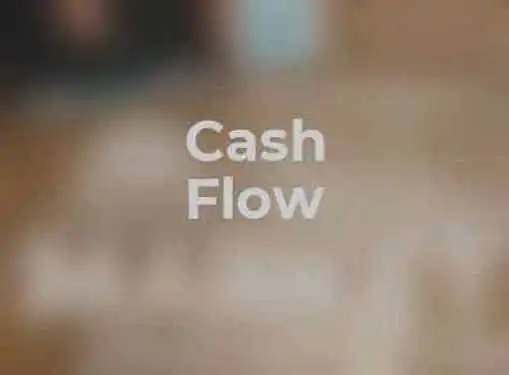Understanding Financial Statements
Cash Flow
Written by Bennet Grill for Gaebler Ventures
So you've developed an amazing product and are ready to start a business, but you're not exactly a big finance person. The first article in this four-part series on understanding financial statements focuses on cash flow statements.
Many entrepreneurs can generate great ideas and products, but to be a successful businessman, you need to understand how to effectively produce and market your idea through a financially stable business model.

Many entrepreneurs can generate great ideas and products, but to be a successful businessman, you need to understand how to effectively produce and market your idea through a financially stable business model.
No matter how innovative or cutting-edge your ideas are, it's absolutely necessary to establish a financial plan to gain proper support for your business, and ultimately, your product or service. If you're looking to successfully start and run a business, you must also grasp the fundamental concepts set forth in a cash flow statement.
In basic terms, a cash flow statement records the cash that goes in and out of a company. It uses information found on a company's balance sheet and income statement to record events that deal with the in-flow and out-flow of cash; it is not concerned with non-cash assets or transactions. When you hear someone use the term "cash flow," they are most likely either referring to operational, investment, or financing cash flow.
Operational Cash Flow
Operational cash flow describes the cash resulting from operations: the production, marketing, and sale of the product or service.
Included in this type of cash flow is the revenue generated from the sale of the product or service (incoming cash) minus the total cost of production and sales.
At a basic level, if I was selling lemonade and charged $1 per cup, my incoming cash flow from operations would be $1 for every cup I sold. My outgoing cash flow would be the combined cost of the powdered lemonade, water, and cup--let's say this is 50 cents. If I sold one cup of lemonade, my operational cash flow would be 50 cents ($1 received for selling lemonade, 50 cents paid for the production of lemonade.) This is assuming I am working without an hourly wage, and that there are no rental costs for the property or table.
As you can probably tell, operational cash flow can be a lot more complicated than this simple example. However, as long as you account for all incoming cash due to sales and all outgoing cash due to costs of production, you will be able to calculate operational cash flow.
Investment Cash Flow
Investment cash flow is chiefly concerned with cash expenses and in-flows as they relate to capital expenditures and the acquisition or sale of assets.
If a company sold some of the land it owns or some of the equipment in its factory, it would be recorded as a positive contribution to investment cash flow. Conversely, if a company decides to purchase more capital to allow for greater production, say a new machine, the cost paid is a negative entry for investment cash flow.
Financing Cash Flow
Last but not least is financing cash flow. This form of cash flow is related to the equity of the company.
If you receive cash for issuing shares, it is a positive entry for financing cash flow. On the other hand, if you pay a dividend to shareholders, this is a negative entry in financing cash flow.
Free Cash Flow
Once you know the value of your operational cash flow, investment cash flow, and financing cash flow, you can add them all together to calculate your free cash flow (FCF), an important metric used by financial analysts and investors to judge the performance of a company.
Understanding and being able to calculate free cash flow is essential to successfully running a business. Make sure to read about income statements and balance sheets on Gaebler.com, as they play an equally important role of measuring a company's performance.
Bennet Grill is a writer who has a passion for business and finance. He is currently an Economics major at Duke University in North Carolina.
Share this article
Additional Resources for Entrepreneurs

Conversation Board
Do you have something to say about small business cash flow? We welcome your feedback!